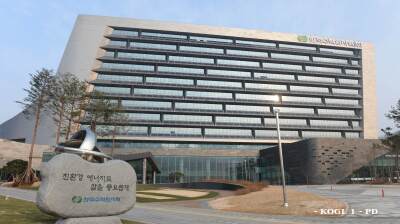China continues to solidify its claim to be the global green champion after EV sales overtook the sales of conventional internal combustion engine (ICE) vehicles in July, Energy Intelligence reported on August 28.
As of July, EVs accounted for over 50% of all light vehicle sales in the world's second-largest economy, driven by a growing range of low-cost models that are also attracting foreign buyers.
China’s EV industry burst onto the scene in the last two years, driven by burgeoning exports to Russia, to make it both the world’s biggest producer and exporter.
According to the China Passenger Car Association (CPCA), the market share of EVs reached 51.05% in July, a trend expected to continue with projections of 980,000 EVs sold in August, capturing 53.2% of the market, Energy Intelligence reports.
This surge comes after a slower start to the year when EV penetration fell to one-third of the market in the first two months, down from 36% in 2023. The drop in February sales by 12% year on year was attributed to the timing differences of the Chinese New Year in 2023 versus 2024.
China is investing heavily into renewables as it seeks to make renewables a key source of energy. As bne IntelliNews reported, Chinese wind and solar overtake coal in the energy mix this summer and has doubled in the last three years to now account for 35% of all China’s power generation in 2023 versus just over 21% in the US and 23% in the EU.
China generated 37% of global wind and solar electricity in 2023, enough to power Japan. China is also rolling out an extensive nuclear power programme and is set to overtake both France and the US to deploy a fourth-generation nuclear power plant (NPP) at scale in the coming decade.
The rapid acceleration in EV sales since February has been supported by a combination of policy measures and economic incentives that are part of China’s larger green transition policies. In response to the economic downturn fuelled by problems in the real estate sector, Beijing has implemented initiatives to stimulate consumer spending, particularly on EVs.
The Action Plan for Promoting the Renewal of Consumer Goods, launched by 14 ministries in March, and the subsequent implementation guidelines issued by seven ministries in April, have been pivotal in driving the market. By August 22, the EV trade-in program had already led to over 680,000 registrations, according to the Ministry of Commerce.
“I believe the implementation of the policy is a major positive for the auto market, and the total number of scrapped vehicles [for trade-in] is expected to reach nearly 10mn,” said Cui Dongshu, secretary of the CPCA, in an April statement, as cited by Energy Intelligence.
Local governments have further incentivized EV adoption with tax breaks, exemptions from traffic control restrictions, and increased issuance of purchase permits, particularly in cities like Beijing. Hainan, which is set to become China’s free trade hub in the South China Sea, has taken a bold step by announcing a ban on ICE car sales from 2030.
Hybrid hype
The surge in EV sales is being largely driven by the popularity of plug-in hybrid electric vehicles (PHEVs), which have outpaced pure battery electric vehicles (BEVs) in growth. In July, PHEV sales increased by 80.7% year on year, while BEV sales saw a modest 2.6% rise. By the end of July, PHEVs had expanded by 85% compared to a 10% rise in BEV sales.
China’s EV national champion BYD is leading the change to PHEV hybrids as its technology leapfrogs that in the West. In May, BYD introduced its latest dual-mode intelligent (DM-i) system, significantly extending the range of its EVs to 2,100km with a fuel consumption rate of 2.9 litres per 100 km—approximately one-third of the fuel consumption of traditional gasoline vehicles.
PHEVs currently offer longer ranges than BEVs, up to 1,000 km (620 miles), while being more affordable and safer, Energy Intelligence reports.
International expansion
Russia has played an important role in the growth of Chinese EVs and became a major export destination following the imposition of extreme sanctions following the invasion of Ukraine in 2022. Russia’s automotive sector was amongst the hardest hit by the withdrawal of foreign partners and came to a screeching halt in the summer of 2022. However, since car sales have entirely recovered to their pre-war levels by July as Chinese companies step into the hole created by the departure of Western brands.
BYD is now rolling out extensive production in Russia and across Central Europe and Eurasia.
Chinese carmaker BYD has signed a $1bn agreement with Turkey’s Ministry of Industry to build a production plant in the country’s Manisa province, the ministry said on July 8.
China’s fifth-largest EV battery maker, ranked 9th globally, Sunwoda, has registered its Hungarian subsidiary, headquartered in central Budapest, also in July to support the European EV business. The company already has a number of manufacturing facilities in China, India, France, Germany, the USA and Israel.
Chinese cars have also flooded the Gulf Arabian auto markets. Brands such as MG, Geely, BYD, Changan, Omoda and others have introduced every model and sub-variant to the Arabian markets in the last year.
And the first EV rolled off a new assembly line at BYD’s Uzbek plant at the end of June, only a year after ground was broken on the facility, as China eyes the populous Central Asian country as an automotive production hub for the region. Uzbekistan has also traditionally been a big exporter of affordable cars to Russia, based on Daewoo technology that was founded in the noughties by former president Ismail Karimov.
However, BYD’s booming sales and cheap prices have provoked a protectionist response from Western markets which have begun to impose hefty import duties on BYD cars to protect their own players. BYD overtook Elon Musk’s Tesla as the world’s best-seller of electric vehicles (EVs) last year.
bneGREEN

EXPLAINER: What is the EU’s CBAM and how will it affect global trade from 2026?
The European Union’s Carbon Border Adjustment Mechanism (CBAM) will enter its full operational phase on January 1, 2026, marking a major shift in global climate and trade policy.

Iran faces critical water crisis after driest year in five decades
Iran faces critical water crisis after driest year in five decades with 40% nationwide rainfall drop.

Global renewables to double by 2030, but IEA warns momentum must accelerate
Global renewable energy capacity is on course to double by 2030, reaching 4,600 GW—comparable to the current combined total of China, the European Union and Japan—according to the International Energy Agency’s Renewables 2025 report.

South Korea’s embrace of SMRs as a pillar of nuclear policy
Spearheaded by Korea Hydro & Nuclear Power, these compact reactors are increasingly being seen as central to the nation's energy policy, offering flexibility, scalability, and ultimately a pathway to carbon neutrality




